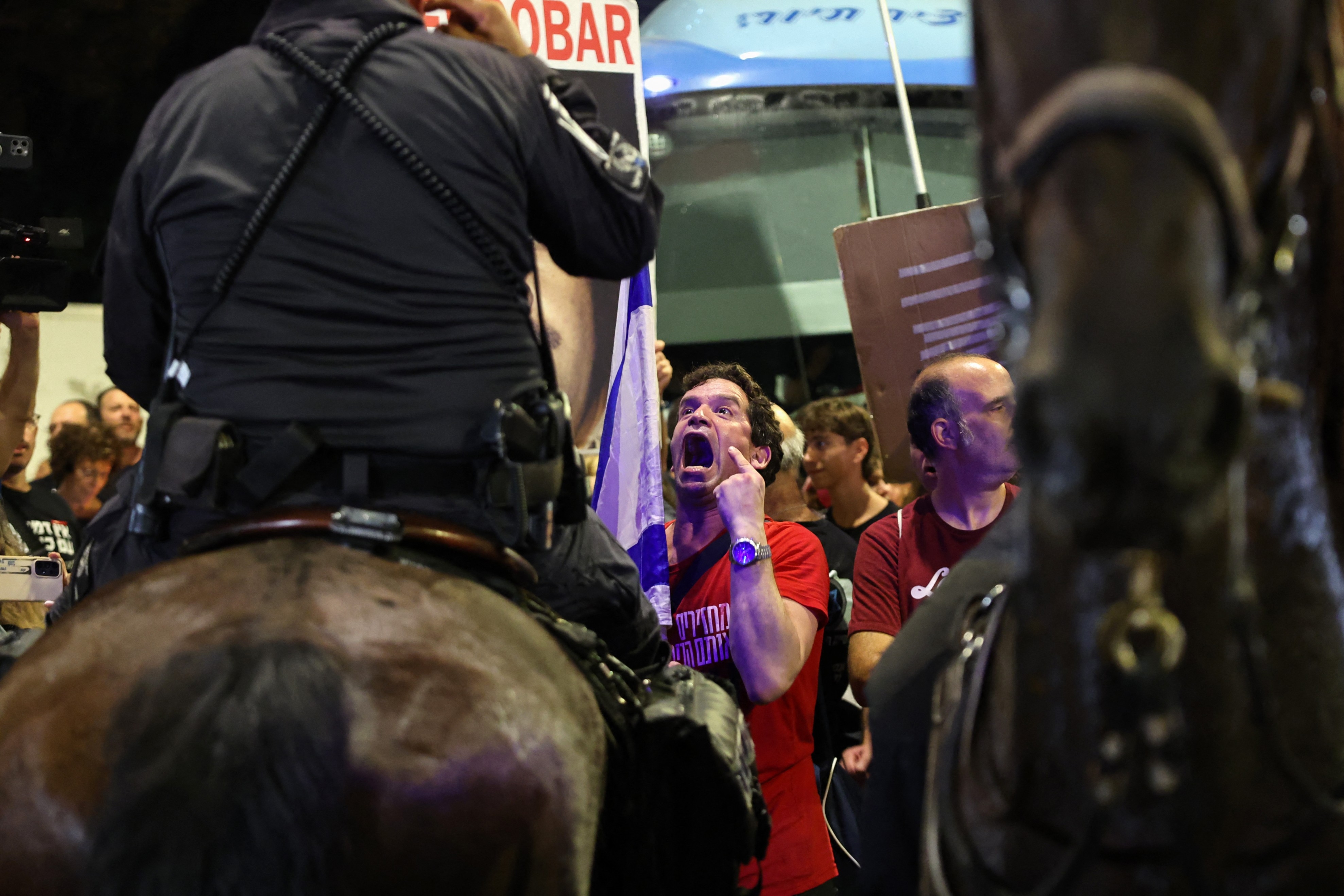
OCCUPIED AL-QUDS August 25. 2024 (Saba)- Tens of thousands of Zionist settlers took to the streets in major cities across occupied Palestine over the weekend, calling for Prime Minister Benjamin Netanyahu to finalize a prisoner exchange deal and step down from office.
The demonstrations, described by Zionist media as the largest since October 7, 2023, took place in Tel Aviv, occupied Jerusalem, Haifa, Caesarea, Beersheba, and other cities.
Protesters voiced their frustration with Netanyahu's handling of the negotiations, urging him to abandon his demands, including the maintenance of a military presence on the border between the Gaza Strip and Egypt.
Many expressed concern that failure to reach a deal could lead to further escalation in the conflict.
Yair Lapid, leader of the Zionist opposition, publicly criticized Netanyahu, suggesting that he should personally travel to Cairo to finalize the deal rather than delaying the process.
Lapid accused Netanyahu of stalling to preserve his government coalition, which he claimed is hindering the deal's progress.
Families of Zionist prisoners held by Palestinian resistance groups in Gaza joined the protests, demanding that Netanyahu take decisive action to secure their release.
They argued that Netanyahu's conditions, including his insistence on controlling the Philadelphi Corridor, are preventing a final agreement. The families warned that the current round of talks represents a "last chance" to complete the deal before potential escalation.
In a public statement, the families called on U.S. President Joe Biden to intervene and pressure Netanyahu to finalize the agreement.
They urged Israeli negotiators to challenge Netanyahu's conditions and warned that any failure to secure the deal would be attributed to Netanyahu and his government.
Protesters gathered outside Netanyahu’s headquarters in Caesarea and Tel Aviv, some demonstrating barefoot and blindfolded to symbolize their perceived helplessness.
The protesters demanded a change in what they described as the "worst government in the history of Israel" and called for a clear public statement from Netanyahu regarding his position on the prisoner exchange deal.
The protests reflect growing public discontent and highlight the intense pressure on Netanyahu as the Israeli government faces mounting calls for action and accountability in the ongoing conflict.
H.H
The demonstrations, described by Zionist media as the largest since October 7, 2023, took place in Tel Aviv, occupied Jerusalem, Haifa, Caesarea, Beersheba, and other cities.
Protesters voiced their frustration with Netanyahu's handling of the negotiations, urging him to abandon his demands, including the maintenance of a military presence on the border between the Gaza Strip and Egypt.
Many expressed concern that failure to reach a deal could lead to further escalation in the conflict.
Yair Lapid, leader of the Zionist opposition, publicly criticized Netanyahu, suggesting that he should personally travel to Cairo to finalize the deal rather than delaying the process.
Lapid accused Netanyahu of stalling to preserve his government coalition, which he claimed is hindering the deal's progress.
Families of Zionist prisoners held by Palestinian resistance groups in Gaza joined the protests, demanding that Netanyahu take decisive action to secure their release.
They argued that Netanyahu's conditions, including his insistence on controlling the Philadelphi Corridor, are preventing a final agreement. The families warned that the current round of talks represents a "last chance" to complete the deal before potential escalation.
In a public statement, the families called on U.S. President Joe Biden to intervene and pressure Netanyahu to finalize the agreement.
They urged Israeli negotiators to challenge Netanyahu's conditions and warned that any failure to secure the deal would be attributed to Netanyahu and his government.
Protesters gathered outside Netanyahu’s headquarters in Caesarea and Tel Aviv, some demonstrating barefoot and blindfolded to symbolize their perceived helplessness.
The protesters demanded a change in what they described as the "worst government in the history of Israel" and called for a clear public statement from Netanyahu regarding his position on the prisoner exchange deal.
The protests reflect growing public discontent and highlight the intense pressure on Netanyahu as the Israeli government faces mounting calls for action and accountability in the ongoing conflict.
H.H
resource : Saba